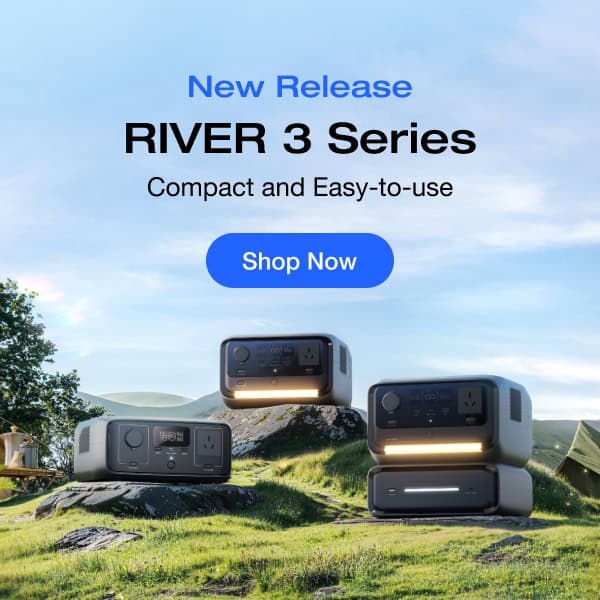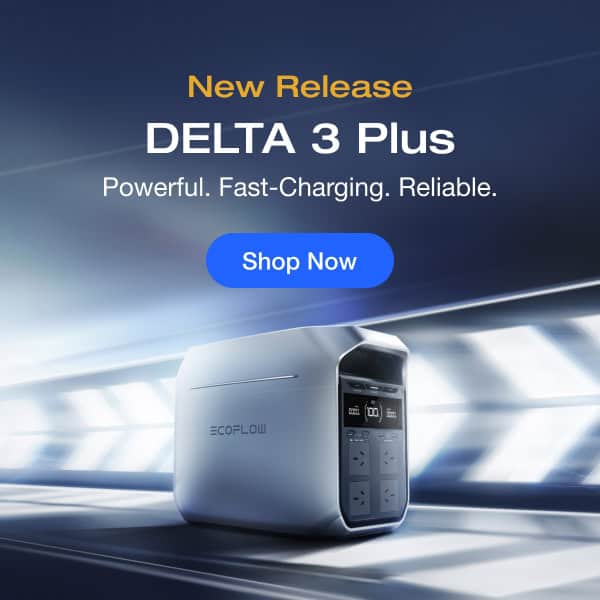Table of Contents
Generators are crucial tools providing backup power and off-grid energy for various residential, recreational, commercial, and industrial applications. With evolving technology in 2025, the variety of generator options has expanded, catering to diverse needs and usage scenarios.
From traditional petrol and diesel models to innovative renewable energy solutions like solar and wind, understanding their unique features, portability, and different uses can help you make an informed decision to best meet your energy needs. Let’s get started.
Petrol
Petrol generators utilise the combustion of petrol to spin a crankshaft on a motor, which turns a rotor to create an electromagnetic field, converting mechanical energy into an electrical current. Petrol models are the most widely available and, therefore, are often the cheapest to buy.
However, petrol is expensive, so running them is not cheap. Petrol also has a short shelf life. If the generator is not used regularly, this often clogs the fuel system and may require a carburettor rebuild. They also produce carbon dioxide, contributing to climate change, and produce carbon monoxide, so they cannot be used indoors without risking lethal carbon monoxide poisoning.
Applications
- Outdoor activities
- Construction sites
- Temporary backup power for outages (do not bring indoors)
Diesel
Diesel generators are like petrol models but are more efficient at producing power. Instead of carburettors, they use compression to produce electrical energy. This and the lower temperatures they require put less strain on the engine, allowing them to last longer than petrol. Diesel also has a longer shelf life, making it better for people who do not always use them.
However, it has the same drawback as petrol in being unsafe indoors because of carbon monoxide. Furthermore, diesel is a far dirtier fuel source that produces even more carbon dioxide and dangerous airborne particulate matter, the chronic exposure of which can be deadly, especially for people with respiratory conditions.
They’re also the largest and noisiest generators, making them a poor choice for residential neighbourhoods or travelling.
Applications
- More efficient than petrol for off-grid power
- Backup electricity supply (use outdoors only)
- Better than petrol for heavy-duty appliances
Inverter Generator
Inverter generators use fossil fuels, but they have more advanced technology that allows them to use less fuel by throttling fuel to meet demand rather than always running at maximum capacity. They also produce a more stable AC power supply using a rectifier to convert AC into DC.
Then, the inverter converts it back to AC to create an AC source with less harmonic distortions, making it more suitable for sensitive electronics. They are also more compact and lightweight than traditional generators but have a heavier price tag. However, they still produce toxic and greenhouse gases and can never be used indoors.
Applications
- Camping, caravanning, and other outdoor activities
- Preferred over traditional generators for sensitive electronics
Liquid Propane Gas (LPG)
Liquid propane gas is a cleaner fossil fuel than the others, producing less carbon dioxide. The fuel also doesn’t degrade over time, so you don’t have to worry about using old fuel if you only use it occasionally. However, they still generate toxic carbon monoxide, so they cannot be used indoors.
The EcoFlow Smart Generator is a newer, affordable version that can use both LPG and petrol for versatile traditional fuel options. It can also be connected to solar generators or recharged via AC or DC plugs for maximum versatility. Another advantage is that it’s also an inverter generator that is much more efficient than traditional models in generating electricity and is safer for sensitive electronics than traditional models.
It even comes with an app that will notify you if the carbon monoxide levels are getting too high near it. This makes it a superior choice for those looking for a fossil fuel generator.
Applications
- Portable generator for camping and caravans
- Outdoor events and activities
Solar
Solar generators are clean, renewable energy options that use photovoltaic cells that capture photons of sunlight, causing electrons to be released from their semiconductor materials, which flow as one-way DC electricity. A solar generator has a portable power station like the EcoFlow Portable Power Stations, which contains a battery that stores that DC electricity so you can have power day or night.
They typically have built-in inverters that convert DC into the AC electricity you use to run your appliances. Since they emit no greenhouse gases, carbon monoxide, or other byproducts, they are safe to use indoors or outdoors. And since there are no moving parts to maintain or break down, they tend to last the longest.
They operate at sound levels just above a whisper, so they can be used inside tents, cars, and even campgrounds where other generators are banned due to the noise. EcoFlow Solar Generators also come in various sizes, from portable models that fit in a backpack to large models that run a large home.
For instance, the EcoFlow DELTA 2 Max Solar Generator is the perfect choice for camping or travelling because it has 2048Wh of capacity, plenty for any travel appliance, and it comes with a super-efficient 160W solar panel for solar recharging. Or, if you’re looking for a larger option for household backup or even a complete off-grid solution, the EcoFlow DELTA Pro 3 is perfect with its 4000Wh capacity that you can connect to multiple solar panels for fast recharging. It is also expandable with extra batteries up to 12kWh.
Applications
- Camping and caravaning: safe to use inside
- Great for campgrounds where other generators are banned
- Runs small and large appliances of any size with the right capacity
- Best for sensitive electronics, it can even be used as an Uninterruptable Power Supply (UPS)
- Small models can be brought hiking
- Large models can be used as a backup power source for outages
- Large models with extra capacity can run an entire home off-grid
Wind
Wind turbines are another renewable energy option that uses wind energy to turn rotor blades, creating kinetic energy that spins a shaft. This transfers the kinetic energy to the generator and creates an electromagnetic field to generate electricity. In that way, it works similarly to fossil fuel generators but uses wind energy instead of fossil fuel combustion to turn the crankshaft.
Like solar, wind is completely renewable and generates no toxic or greenhouse gases. The major drawback is that it relies on wind, which is not always plentiful enough, and they are not portable since the wind turbine is a stationary unit.
Also, since they rely on wind, they are best used to supplement your household power but are unsuitable as a backup power supply unless you store your energy in batteries.
Applications
- Supplement household power to reduce energy costs
- Popular for pumping water on farms
Micro Hydroelectric
Micro hydroelectric generators are a different renewable energy option that uses flowing water (hydro) to produce electricity. They work similarly to a wind turbine, except the water flows through a pipe, called a penstock, to the turbine, turning the turbine blades with water instead of the wind.
The blades on the turbine rotate, creating kinetic energy for the generator, which creates an electromagnetic field and generates electricity. Since it uses water, it produces no greenhouse gases. But like wind, it is not portable, and its efficient use relies on direct access to flowing water.
Still, they can be a good option for those who have rivers or creeks in close proximity to where the electricity is needed.
Applications
- Supplement household electricity
- With a large enough system and reliable water flow, it could power an entire home
Portable Generators
Portable models are simply those that are designed to be moved around easily. They come in various power configurations, including petrol, diesel, LPG, and solar. Solar could be considered the most portable because they contain no motor, so the size and number of batteries determine their size. This means they can be made as small as something that can fit in a backpack to something so large it becomes challenging to move.
Furthermore, since the sun shines almost everywhere on Earth, they can be used virtually anywhere without needing to pack fuel.
Applications
- Household or business backup for essential appliances during power outages
- Whole-home backup or off-grid energy solution
- Construction sites
- Camping and other outdoor activities
- Outdoor concerts, weddings, and other events
- Powering agricultural equipment, including bore wells and drip irrigation
Standby Generators
A standby generator is simply one that is directly wired into household or business electricity, so it will switch on automatically anytime the electrical grid goes down. Standby models can be run on fossil fuels or solar power. For instance, EcoFlow Solar Generators can be connected directly to the household electrical system using an EcoFlow Smart Home Panel.
If the grid goes down, it can be set up to turn on automatically so you will always remain connected with uninterrupted power.
Applications
- Backup power in case of grid failure
- Used by homes, businesses, hospitals, and apartment buildings
Industrial Generator
Industrial models are large commercial generators that can supply from 20 kW to 2500 kW of output for various power sources, including single-phase and three-phase. They typically use fossil fuels and are mostly stationary models that cannot be moved.
However, some newer models are portable, and large solar generators are now being used in small to large-scale industrial applications.
Applications
- Industrial uses where a very large power output is required
Frequently Asked Questions
Many types can run a house, including petrol, diesel, LPG, solar, wind, and micro-hydroelectric. However, solar, wind, and hydro are the cleanest. Solar energy has the significant advantage of being suitable for virtually any home, and the power station can be safely brought indoors.
Diesel generators are the most efficient fossil fuel generators. However, nothing beats a solar generator for efficiency since it uses only incoming sunlight to generate electricity.
Final Thoughts
Generators come in various types, each with distinct advantages and applications. Fossil fuel models, such as petrol and diesel, are widely available but have significant environmental and safety drawbacks, while LPG offers a cleaner-burning alternative. Still, renewable options like solar and wind are paving the way for sustainable, clean energy solutions, with solar providing unmatched versatility.
Whether you’re looking for a portable generator for camping or a robust solution for your home or business, EcoFlow Solar Generators deliver clean, reliable, and efficient energy tailored to your various needs.


